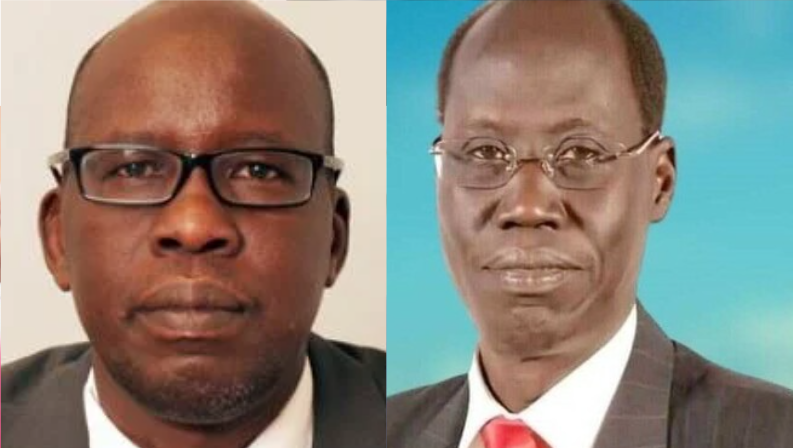South Sudan stands at a critical juncture in its journey towards stability and development. Years of conflicts, economic instability, political patronage and power wrangle have left the nation struggling to provide basic services, particularly in education – a sector that holds the key to the future.
Yet amidst these enormous challenges, there are glimpses of hope, particularly when competent, highly qualified and experienced leaders are entrusted with key positions in government. While political considerations are inevitable in a transitional government, the nation’s survival depends on competence over connections.
Born in 2011 but still crawling today, South Sudan is at the brink of transformation. At this pivotal movement, the role of experienced and qualified leaders cannot be overstated.
One such leader is Dr Kuyok Abol Kuyok, the Minister for General Education and Instruction. Under his leadership, the ministry has already launched a ground breaking four-year project, backed by US$58 million grant from the Global Partnership for Education (GPE), aimed at reforming access to quality education for over 300,000 children, with special focus on girls, rural, children with disabilities and marginalized communities. This is not a mean feat in a country where more than 70% (of 2.8 million) of school-age children are out of school. This swift and impactful move, achieved in less than six months since his appointment, underscores the potential in harnessing the right talent with a proven track record. This prompt turn around by the minister, sends out strong messages that demonstrates what happens when expertise meets opportunity.
Though the GPE program is a step in the right direction, sustaining the momentum requires more than a donor support-it demands institutionalizing merit-based leadership over cronyism.
Dr Kuyok’s success is no accident. His extensive experience as undersecretary in the Ministry of General Education and Instruction provided him with an intimate understanding of the sector’s system weakness. Moreover, his academic credentials, including a PhD, provided him with a robust foundation to address the pressing education challenges with immediate effect. It also equipped him with analytical and strategic thinking to navigate the complex policy landscapes. No doubt, his leadership exemplifies why South Sudan must prioritize meritocracy, experience and academic excellence in appointments to critical government positions.
Similarly, Prof John Akech, the former VC of the University of Juba, another seasoned academic and administrator, has demonstrated how technocratic leader can drive progress in key institutions- the case of his footprints in the University of Juba. His exceptional qualifications and vast experience are indispensable assets for South Sudan, especially at a time when educational resurgence is imperative for national development. When qualified professionals lead, policies are not just theoretical-they translate into tangible improvements in service delivery.
Considering the exemplary leadership provided by Dr Kuyok and Prof Akec, President Salva Kiir must recognize that South Sudan’s recovery cannot be left to trial and error. The education sector’s recent strides under Dr Kuyok plus that of Prof Akec prove that when qualified leaders are given the mandate and resources, they deliver. Imagine the impact if such expertise were replicated in health, infrastructure, agriculture and economic planning?
Dr Kuyok’s immediate impact is evident in well-structured programs tailored to benefit over 300,000 directly and 600,000 indirectly. It reflects a leader who does not only embody commitment but also delivers tangible results. His dedication is palpable, as he is known for being one of the few ministers who work beyond the call of duty, ensuring that every detail of education reforms is thoroughly addressed. A commitment of this magnitude is rare, exceptional and commendable, setting a precedent for others.
Furthermore, the ministry’s ambitious initiatives underscore a broader vision for the country’s future. By aligning with the Sustainable Development Goal (SDG), particularly SDG-4, which advocate inclusive and equitable quality education, the ministry is strategically positioning itself within the global education discourse. The pressing need for education equity and quality is clearer than ever, as stressed by UNICEF and global stakeholders striving to give every child in South Sudan, especially girls and those from disadvantaged backgrounds, an educational path.
Through Dr Kuyok’s recent initiatives and the expertise of highly qualified leaders like Prof Akec, lies an opportunity for South Sudan to break the cycle of instability and ignorance that has plagued it for too long. It is time President Kiir leveraged this human capital-these passionate, experienced and capable leaders -to spearhead a revival in education.
The stake could not be higher. Investing in quality education today will pay dividends for future generations, fostering a more united prosperous nation. It is the responsibility of the government to recognize the power of experience and qualifications, propelling South Sudan towards a brighter future. The time to act is now, exemplified by the drive and determination of leaders of D. Kuyok’s and Prof. Akec’s caliber.
The writer, Dr. Geng Geng, is a medical professional based in Juba. He can be reached via lukageng@gmail.com
The views expressed in ‘opinion’ articles published by Radio Tamazuj are solely those of the writer. The veracity of any claims made is the responsibility of the author, not Radio Tamazuj.




